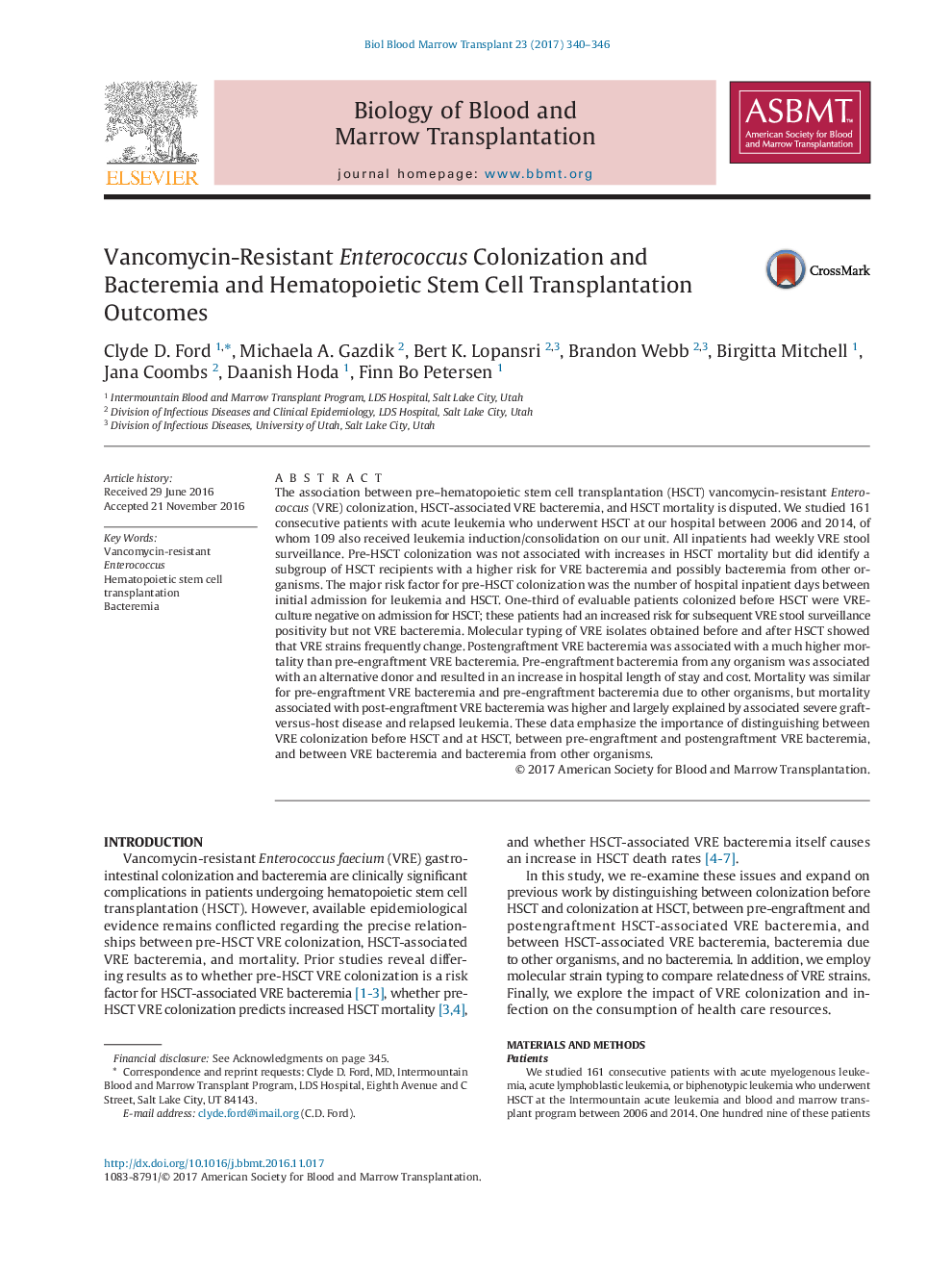| کد مقاله | کد نشریه | سال انتشار | مقاله انگلیسی | نسخه تمام متن |
|---|---|---|---|---|
| 5524255 | 1546245 | 2017 | 7 صفحه PDF | دانلود رایگان |
- Vancomycin-resistant Enterococcus colonization before hematopoietic stem cell transplantation increases vancomycin-resistant Enterococcus blood stream infections
- Vancomycin-resistant Enterococcus colonization before hematopoietic stem cell transplantation does not increase hematopoietic stem cell transplantation mortality
- Pre-engraftment vancomycin-resistant Enterococcus blood stream infection has a better prognosis than postengraftment vancomycin-resistant Enterococcus blood stream infection
- Postengraftment vancomycin-resistant Enterococcus blood stream infection is associated with multiple severe comorbidities
- Any blood stream infection is associated with increased hematopoietic stem cell transplantation costs
The association between pre-hematopoietic stem cell transplantation (HSCT) vancomycin-resistant Enterococcus (VRE) colonization, HSCT-associated VRE bacteremia, and HSCT mortality is disputed. We studied 161 consecutive patients with acute leukemia who underwent HSCT at our hospital between 2006 and 2014, of whom 109 also received leukemia induction/consolidation on our unit. All inpatients had weekly VRE stool surveillance. Pre-HSCT colonization was not associated with increases in HSCT mortality but did identify a subgroup of HSCT recipients with a higher risk for VRE bacteremia and possibly bacteremia from other organisms. The major risk factor for pre-HSCT colonization was the number of hospital inpatient days between initial admission for leukemia and HSCT. One-third of evaluable patients colonized before HSCT were VRE-culture negative on admission for HSCT; these patients had an increased risk for subsequent VRE stool surveillance positivity but not VRE bacteremia. Molecular typing of VRE isolates obtained before and after HSCT showed that VRE strains frequently change. Postengraftment VRE bacteremia was associated with a much higher mortality than pre-engraftment VRE bacteremia. Pre-engraftment bacteremia from any organism was associated with an alternative donor and resulted in an increase in hospital length of stay and cost. Mortality was similar for pre-engraftment VRE bacteremia and pre-engraftment bacteremia due to other organisms, but mortality associated with post-engraftment VRE bacteremia was higher and largely explained by associated severe graft-versus-host disease and relapsed leukemia. These data emphasize the importance of distinguishing between VRE colonization before HSCT and at HSCT, between pre-engraftment and postengraftment VRE bacteremia, and between VRE bacteremia and bacteremia from other organisms.
Journal: Biology of Blood and Marrow Transplantation - Volume 23, Issue 2, February 2017, Pages 340-346
